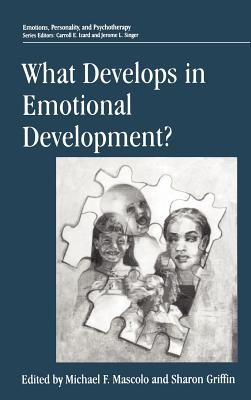
- Mēs nosūtīsim 10-14 darba dienu laikā.
- Izdevējs Springer
- Gads: 1998
- ISBN-10 : 0306457229
- ISBN-13 : 9780306457227
- Formāts: 15.2 x 22.9 x 2.5 cm, kieti viršeliai
- Valoda: Anglų
- Extra -10% atlaide, ievadot kodu: EXTRA
What Develops in Emotional Development? + bezmaksas piegāde! | Bookbook.lv
Atsauksmes
Apraksts
The problem of development is central in the study of emotional life for two basic reasons. First, emotional life so clearly changes (dramatically in the early years) with new emotional reactions emerging against the backdrop of an increasing sensitivity to context and with self-regulation of emotion emerging from a striking dependence on regulatory assistance from caregivers. Such changes demand developmental analysis. At the same time, understanding such profound changes will surely inform our understanding of the nature of development more generally. The complexity of emotional change, when grasped, will reveal the elusive nature of development itself. At the outset, we know that development is complex. We must take seriously what is present at any given phase, including the newborn period, because a developmental analysis disallows something emerging from noth- ing. Still, it is equally nondevelopmental to posit that new forms of new processes were simply present in their precursors. Rather, development is characterized by transformations in which more complex structures and organization emerge from new integration of prior components and new capacities. These new forms and organizations cannot be specified from prior conditions but are due to transactions of the evolving organism with its environment over time. They are not simply in the genome, and they are not simply conditioned by the environment. They are the result of the develop- mental process.10 EXTRA % atlaide
Kupona kods: EXTRA
Akcija beidzas 7d.08:41:47
Atlaides kods derīgs pirkumiem no 10 €. Atlaides nav kumulatīvas.
Derīgs tikai pirkumiem tiešsaistē.

- Izdevējs Springer
- Gads: 1998
- ISBN-10: 0306457229
- ISBN-13: 9780306457227
- Formāts 15.2 x 22.9 x 2.5 cm, kieti viršeliai
- Valoda: Anglų

Atsauksmes